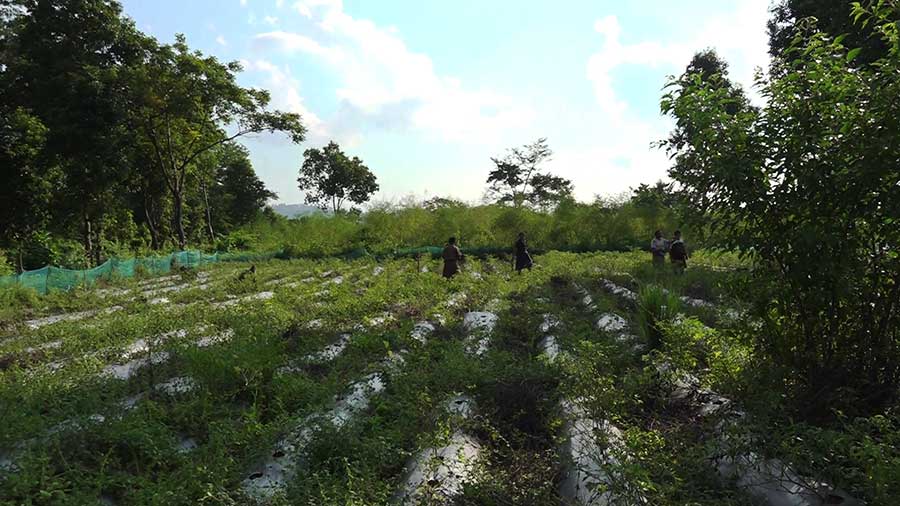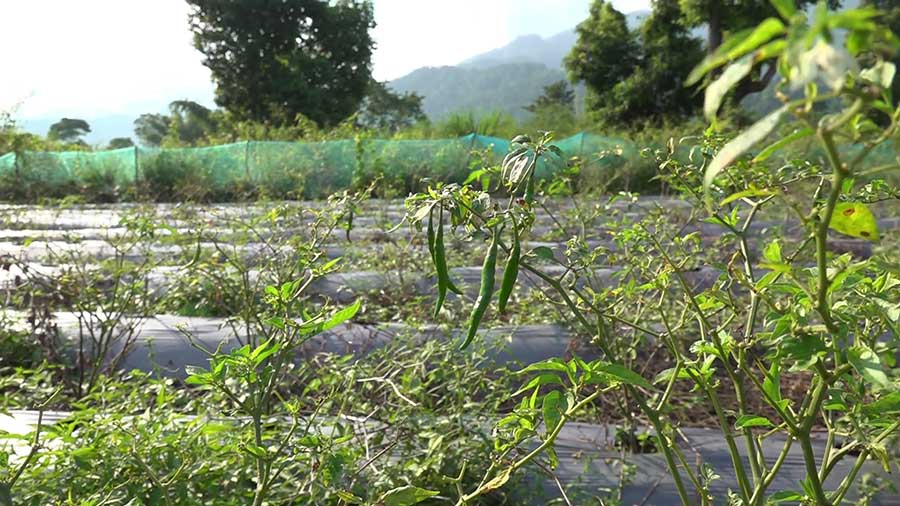
Chilli may become scarce in Samdrup Jongkhar this winter. This is because poor yield and low prices have forced farmers of Pemathang Gewog in the district to stop cultivating winter chilli. They started cultivating chilli on a commercial scale in 2020 after the country closed its border due to the pandemic. They are one of the main chilli producers in the district.
Back in 2020, 20 households of Raling chiwog formed a group to cultivate winter chilli on 18 acres of land. It was a successful venture then. They say they produced 5,000 kilograms of chilli in the past two years and supplied it to Samdrup Jongkhar town and other districts during the off-season.
However, the condition of the farm today is a far cry from the success it enjoyed in the past. The abandoned fields are now covered in thick bushes.
“We cultivated last year and the yield was not good, so we thought it is better not to cultivate as chilli is not suitable with the soil here,” said Tashi Dendup, a Farmer.
“The fertility of the soil is gone. If we cultivate chilli, it dies. The government has supported us but chilli does not grow well now, so we left it,” added Yangchen Tshomo, also from the same village.
 Officials from the Samdrup Jongkhar Agriculture sector say chilli started dying since farmers planted chilli on the same land every year. They say the fertility of the land wanes after some time. Officials also say they are exploring other ways by replacing the seed varieties that can be resistant to frost and diseases.
Officials from the Samdrup Jongkhar Agriculture sector say chilli started dying since farmers planted chilli on the same land every year. They say the fertility of the land wanes after some time. Officials also say they are exploring other ways by replacing the seed varieties that can be resistant to frost and diseases.
The Dzongkhag Agriculture office provided them with technical support and materials like a greenhouse, water pipes, drums, and plastic mulch.
Fetching a low price is also one of the reasons discouraging farmers from cultivating winter chilli this time.
“During the covid time, we cultivated chilli and made a good income, after that many villagers venture into chilli cultivation and we had a marketing problem. The chilli is also damaged by pests, so we did not cultivate,” said Sangay, a farmer in Pemathang Gewog.
Officials say farmers were provided with government land to cultivate chilli in response to the covid-19 situation and now with the relaxation of covid restrictions they are not interested in cultivating chilli.
“We were told that government land is provided to us for three years during the covid situation to cultivate chilli, they said we have not worked, from our side we had worked hard but chilli did not grow well so we stopped cultivating it,” added Tashi Dendup.
The gewog and dzongkhag agriculture sectors are now looking for enterprising farmers and youth to take up chilli cultivation on a large scale. If this is successful, the abandoned land will once again turn into chilli fields, just like it was last season.
Kinley Wangchuk, Samdrup Jongkhar
Edited by Sonam








